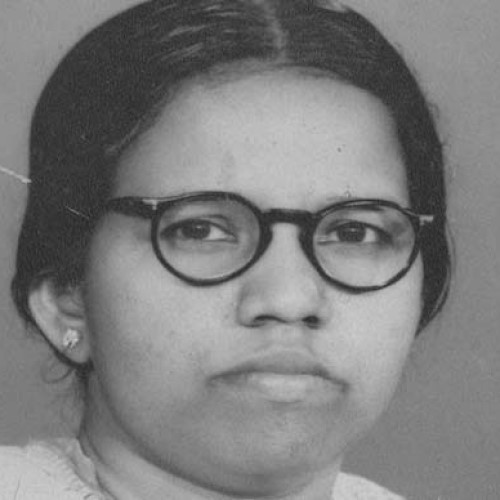Early Life
Dakshayani Velayudhan was born on 15 July 1912 in Mulavukad a small island in the present-day Ernakulam district. She belonged to the Pulaya community, which was assigned to the rear end of the rigorously oppressive caste system. Pulayas were mostly engaged as lowly-paid agricultural labourers, and subjected to a range of humiliations including being barred from using public roads, maintaining a certain distance from upper caste persons, and the women prohibited from covering their upper bodies with any garment.
An important event was held in Kochi in 1913, in the form of the Kayal Sammelanam. Hundreds of Pulayas, including Velayudhan’s family members, came together and met on small boats in Kerala’s backwaters, as they were barred from assembling on land. The event clearly had a significant impact on Dakshayani’s life, who is said to have requested that her biography be titled ‘The Sea has no Caste.’
Role in India’s Independence Movement
Velayudhan was inspired to enter active politics by her family members’ active involvement in civil disobedience movements against upper-caste diktats.
Velayudhan emerged as a fierce critic of Congress politics, writing strongly against them in the All India Scheduled Castes Federation’s (AISCF) weekly journal, Jai Bheem. At the same time, she was also critical of the AISCF and B.R. Ambedkar’s politics, specifically their demand for separate electorates for the Scheduled Castes.
Fierce often sexist attacks, from both Congress and AISCF followed. Fervent petitions were addressed to the Congress high command by opposing her nomination to the Constituent Assembly. In spite of these she was elected to the body in 1946.
In 1945, she had also been nominated to the Cochin Legislative Council.
Contribution to Constitution Making
Velayudhan was elected to the Constituent Assembly from the Madras constituency. At the age of 34, she was one of the youngest and the only Dalit woman member of the Constituent Assembly.
In the Assembly, Velayudhan emerged as a strong, independent voice, unafraid to go against popular opinion. Velayudhan made her inaugural intervention during the Assembly’s response to Nehru’s Objective Resolution. Asserting that although there were several models to follow when framing a constitution, she emphasized that the Indian Constitution had a more substantial task than simply mediating the relationship between state and society; it had to overhaul society itself.
Velayudhan also took on B.R Ambedkar and M Nagappa on an amendment that would have required a reserved seat candidate to secure a minimum proportion of votes from Scheduled Caste voters, arguing that this was akin to separate electorates.
Velayudhan held strong views on the type of federalism that India should adopt. Her critique of the Draft Constitution of India 1948 focused on the lack of decentralization and the potential for a strong central government to dominate over state governments. She specifically highlighted the method of appointing Governors of states, which she argued would further centralize power.
Later contributions
Velayudhan was a part of the Provincial Parliament together with her husband, arguably making them the first Dalit couple in the Parliament.
She continued her civil society work with a focus on Dalit rights. In 1977, she set up a women’s rights organization Mahila Jagriti Parishad in Delhi.
In 2019, the Kerala Government instituted the Dakshayani Velayudhan award, which is to be bestowed on women who work towards the empowerment of other women in the state.
She passed away on 20 July 1978, at the age of 66.
- During the Objectives Resolution debate (precursor to the Preamble of the Constitution), Velayudhan noted that communalism was antithetical to nationalism. Further, she believed that the emancipation of Harijans depended on adopting a set of ‘moral safeguards’.
- Contrary to other members from the minority communities, she opposed separate electorates for Harijans.
- Criticizing the centralizing tendency of the Draft Constitution, she called for a more decentralized system that would actually strengthen India’s unity.
- She strongly supported the inclusion of a Fundamental Right against exploitation and forced labour, calling out the ‘fascist social structure existing in India.‘
- When the Assembly discussed untouchability (Article 17 of the Constitution of India), she argued that the best way to address untouchability was through sustained state propaganda and not through punishment.
- Founding Mothers of the Indian Republic: Gender Politics of the Framing of the Constitution by Achyut Chetan, Cambridge University Press, 2022.
- “Remembering Dakshayani Velayudhan, the lone Dalit woman in the Constituent Assembly“ by Saritha S Balan, The NewsMinute, 2018.

